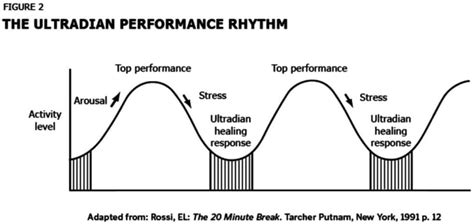Optimize recovery for peak performance without overtraining?

The Critical Link Between Recovery and Peak Performance
In the relentless pursuit of fitness goals, whether it’s setting a new personal record, building muscle, or enhancing endurance, many athletes and fitness enthusiasts focus intently on the intensity and volume of their training. While consistent effort is undoubtedly a cornerstone of progress, it’s merely one side of the coin. The other, often underestimated, yet equally vital side is recovery. Optimal recovery isn’t just about resting; it’s a dynamic process that allows your body to repair, adapt, and grow stronger, ultimately paving the way for sustainable peak performance and preventing the pitfalls of overtraining.

Understanding the Threat of Overtraining Syndrome
Pushing your limits is essential for progress, but there’s a fine line between challenging your body and breaking it down. Cross that line too often, and you risk falling victim to Overtraining Syndrome (OTS). OTS is a state of chronic fatigue, decreased performance, and impaired physical and mental function that results from an imbalance between training stress and recovery. It’s more than just feeling tired; it can manifest as persistent muscle soreness, increased susceptibility to illness, mood disturbances, sleep problems, elevated resting heart rate, and a general lack of motivation.
Ignoring the early warning signs of overtraining can lead to prolonged plateaus, serious injuries, and even a complete halt in your fitness journey. Recognizing these symptoms early is key to adjusting your routine before significant damage occurs.

Pillars of Optimized Recovery
To consistently perform at your best without succumbing to overtraining, integrating strategic recovery methods into your routine is non-negotiable. Here are the fundamental pillars:
Prioritize High-Quality Sleep
Sleep is arguably the most potent recovery tool. During deep sleep cycles, your body repairs muscle tissue, synthesizes growth hormone, and consolidates memories. Aim for 7-9 hours of uninterrupted sleep per night, and establish a consistent sleep schedule, even on weekends. Optimize your sleep environment by making it dark, quiet, and cool.

Fuel Your Body: Nutrition & Hydration
What you put into your body directly impacts its ability to recover. Post-workout, consuming a balanced meal or snack rich in protein and carbohydrates is crucial. Protein aids muscle repair, while carbohydrates replenish glycogen stores depleted during exercise. Don’t forget healthy fats for overall health. Adequate hydration is also paramount; water plays a role in every bodily function, including nutrient transport and waste removal. Sip water consistently throughout the day, not just during workouts.

Embrace Active Recovery & Mobility
Active recovery, such as light cardio (e.g., walking, cycling, swimming) or gentle yoga, increases blood flow to muscles without adding significant stress, helping to flush out metabolic waste and reduce soreness. Incorporating mobility work, stretching, and foam rolling can also improve flexibility, range of motion, and reduce muscle tightness, further aiding recovery and injury prevention.

Manage Stress Effectively
Physical training is a form of stress, but so are work pressures, personal challenges, and lack of downtime. Chronic stress elevates cortisol levels, which can hinder recovery, impair sleep, and even lead to muscle breakdown. Incorporate stress-reducing activities like meditation, deep breathing exercises, spending time in nature, or engaging in hobbies you enjoy.
Listen to Your Body
Perhaps the most critical recovery strategy is developing a keen awareness of your body’s signals. Pay attention to persistent fatigue, unusual soreness, mood changes, or a drop in performance. Don’t be afraid to take an unscheduled rest day or modify your workout. Periodization, which involves cycling through different training intensities and volumes, can also help integrate planned recovery periods.
Striking the Sustainable Balance
Optimizing recovery isn’t about being lazy; it’s about being smart. It’s about recognizing that growth happens during rest, not just during the grind. By prioritizing high-quality sleep, strategic nutrition, active recovery, stress management, and critically, listening to your body, you can create a sustainable training regimen that not only prevents overtraining but propels you towards consistent peak performance, allowing you to achieve your fitness aspirations safely and effectively.







